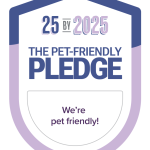Your Questions Answered
Common questions
What Services Do You Provide?
The Women’s Resource Center (WRC) offers emergency, temporary shelter and support services to survivors of domestic violence and their dependent children, as well as to victims of sexual violence and stalking, along with their family members or significant others. The WRC operates two dedicated crisis lines: the Shelter Crisis Line at (405) 701-5540 and the Rape Crisis Center at (405) 701-5660. All services provided by the WRC are completely free of charge. We serve all genders.
Do You Provide Education or Consultation to the Community?
Yes, the Women’s Resource Center (WRC) offers educational programs and consultation services to the community. Our team is available to speak at educational institutions, businesses, and civic groups on topics related to domestic violence, sexual violence, and stalking. We also conduct educational groups at our Community Services Office and provide specialized training for law enforcement and medical personnel to enhance their response to survivors. These initiatives aim to raise awareness, promote prevention, and foster a supportive community. For more information please call (405) 364-9424 ext. 500.
Do You Only Provide Services to Women?
No, the Women’s Resource Center (WRC) serves individuals of all genders across all of our programs.
Do Your Provide Legal Counsel?
No, the Women’s Resource Center (WRC) does not provide legal representation. We refer to Legal Aid. We offer support in exploring your legal options, discussing the pros and cons of different choices, and connecting you with legal counsel if that is the route you choose.
What is Rape?
Rape is any kind of sexual intercourse (vaginal, oral, or anal) that is committed against a person’s will or is committed with physical force or threat to hurt the victim or another person. It is also considered rape if the victim is intoxicated or unconscious and unable to give consent. Rape and sexual assault are not about sexual desire- they are about power and control.
Sexual assault is the legal term for rape, and it also encompasses other behaviors beyond forced sexual intercourse. Sexual assault can be any unwanted sexual contact, such as unwanted touching, fondling, or groping of sexual body parts, even through clothes. It can be committed by the use of threats or force or when someone takes advantage of circumstances that render a person incapable of giving consent, such as intoxication.
Do I have to go to the Hospital for a Rape Exam?
No, our community-based Rape Crisis Center provides a safe, confidential, and supportive space for forensic medical exams. We have a dedicated exam room where a Sexual Assault Nurse Examiner (SANE), trained in trauma-informed care, conducts the exam. Throughout the entire process, an Advocate is by your side, offering support and ensuring your comfort and safety.
What Type of Donations do you Accept or How Can I Donate?
We are not currently accepting clothing donations. To see if your item is something we need, please call us at (405) 364-9424, as our storage space is limited. You may refer to our Amazon Wish List or our Ongoing Needs list for specific items we are collecting. If you would like to make a monetary contribution, you can donate through this webpage or send a check to the Women’s Resource Center, P.O. Box 5089, Norman, OK , 73070. Please make checks payable to Women’s Resource Center. Thank you for your support!
What if I Need a Protective Order?
Call (405) 310-3131 to speak with an Advocate who can assist you with questions regarding the protective order process. This Advocate may assist you with completing paperwork, accompany you to court, and provide advocacy if needed. This service is free of charge and confidential.
What is an Emergency Protective Order?
An Emergency Protective Order (EPO), is a civil court order issued by a judge to prevent one person from committing certain acts against another. An EPO is a legal method used to help protect people from rape or any further acts of domestic abuse, such as; physical harm, threats, harassment, and stalking. The person filing for an EPO is considered a PLAINTIFF and the person being filed against is considered a DEFENDANT.
Do you Provide Individual or Group Counseling?
The WRC provides individual supportive services, crisis intervention, court advocacy and advocacy services for people victimized by domestic violence, intimate partner violence, sexual violence, and stalking. The WRC provides education groups and supportive groups for victims of domestic and sexual violence. For more information call (405) 310-3131.
What is Intimate Partner Violence (IPV)?
Intimate partner violence (IPV) is a pattern of behavior where one person seeks to establish power and control over another through fear, intimidation, and often threats or acts of violence. This form of abuse can include physical assault, battery, sexual assault and abusive tactics used by an intimate partner. The effects are far-reaching, resulting in physical injuries and psychological trauma.
IPV often follows a recurring cycle with distinct phases:
- Tension-Building Phase: Tension and stress build as small conflicts escalate, leading the victim to feel anxious and fearful of the abusers reactions. There is often a feeling of “walking on eggshells”.
- Acute Explosion Phase: The tension leads to an abusive incident, which may involve verbal attacks, physical violence, or other forms of aggression.
- Calm Phase: The abuser may apologize, make promises to change, or attempts to “make up” through affection or gifts, creating a temporary sense of calm and hope for the victim.
Types of IPV include physical, emotional, spiritual, psychological, social, financial, and sexual abuse. Each form is damaging and contributes to the cycle of violence, trapping individuals in a cycle of control and harm.
Do I have to Report Sexual Assault to Law Enforcement to get an Exam?
In 2010, legislature passed a law that allows a victim of rape or forcible sodomy to get a forensic medical exam without having to report it to law enforcement. The exam is paid for out of the Sexual Assault Examination Fund through Victims Compensation. Should you decide at a later date that you wish to pursue charges against the perpetrator the evidence will have already been collected and in the custody of the appropriate law enforcement agency. Each law enforcement agency has their own policy for how long they will keep ‘Jane Doe’ kits. If you have any questions contact the Rape Crisis Center at 405-701-5550.
What can I Expect from a Forensic Medical Exam?
A forensic medical exam can feel overwhelming and there are many misconceptions surrounding it. You have full control over the process and can decide which steps of the exam you do or do not wish to complete. Each law enforcement agency handles the storage and processing of rape kits differently, and results are given to the reporting agency. If you have any questions about the rape kit or exam, please call us at (405) 701-5660. The exam and any medications provided are completely free, we do not charge insurance. We serve all genders.
How are You Funded?
We receive funding from the Attorney General’s Office, VOCA grant (Victim of Crime Assistance), VAWA (Violence Against Women Act), SASP (Sexual Assault Services Programs), SHDRPE (State Health Department Rape Prevention Education), Cleveland County, City of Norman, United Way and through various events and individual donations throughout the year.

